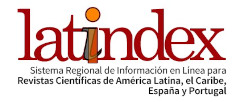HOW EFFECTIVE ARE THE ENVIRONMENTAL-PLANNING TOOLS TOWARDS THE URBANIZATION PROCESS OF JUQUERIQUERÊ RIVER BASIN IN CARAGUATATUBA, SP?
Keywords:
Land use, Urban expansion, Environmental licensing, Technical and political components, Decision arena actors.Abstract
In the beginning of this study, it was possible to comprehend the urban expansion of Juqueriquerê River Basin in Caraguatatuba, Northern Coastline of São Paulo State, Brazil, from 1986 to 2010. Remote sensing techniques were used to obtain information about the urbanization process in a multi-temporal analysis. In this period, mainly in this area, the urban development scenery completely changed because of the governmental project called Pre-Salt, which provided massive investments into gas exploration. This basin was previously vulnerable to irregular housing and flooding. However, some technical components, such as local outcomes of the environmental licensing process at the state or national level, were not considered. Thus, the political and normative components were not in the scope of public hearings. The purpose of this study was to verify the urbanization process, which occurred in the expansion area, and which determined whether this technical component should have been considered during the licensing process of the megaprojects for the effectiveness of environmental-planning tools.Downloads
Published
2015-10-27
How to Cite
Boulomytis, V. T. G., Alves, C. D., Zuffo, A. C., & Gireli, T. Z. (2015). HOW EFFECTIVE ARE THE ENVIRONMENTAL-PLANNING TOOLS TOWARDS THE URBANIZATION PROCESS OF JUQUERIQUERÊ RIVER BASIN IN CARAGUATATUBA, SP?. Revista Brasileira De Gestão E Desenvolvimento Regional, 11(3). Retrieved from https://www.rbgdr.net/revista/index.php/rbgdr/article/view/1964
Issue
Section
Artigos
License
Authors who have their papers accepted and published in the Brazilian Journal of Regional Management and Development must agree to the copyright policy CC BY https://creativecommons.org/licenses/by/4.0/.
If the article is accepted for publication, the copyright is automatically assigned to the Brazilian Journal of Regional Management and Development.
















